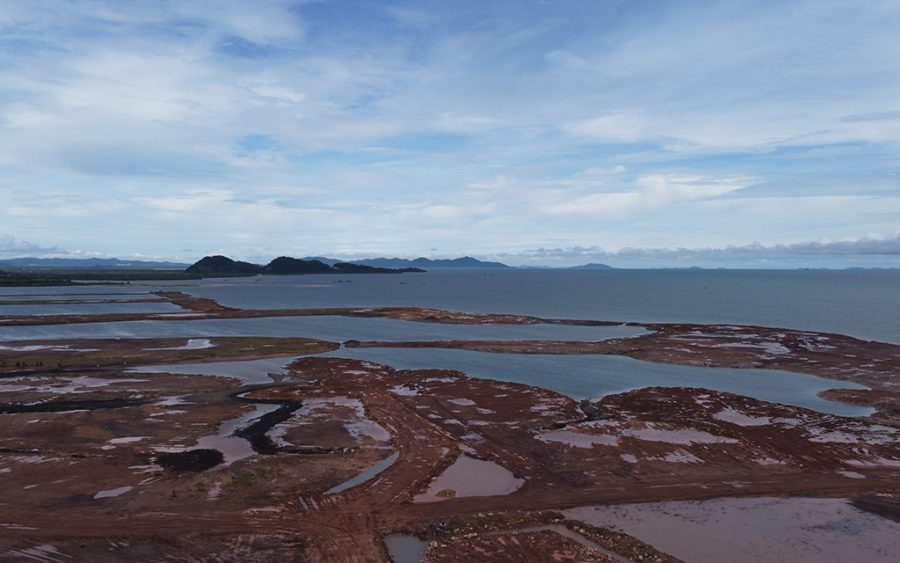Landfilling is underway off the shore of Kampot as the government has transferred 600 hectares to a private company to develop a $1.7-billion port.
A governmental sub-decree signed by Prime Minister Hun Sen on April 6 and publicly released this week says the 600 hectares of sea in Bokor city’s Preak Tnoat commune was reclassified from state property to state private for Kampot Logistics and Port.
The company was incorporated in March last year. Company administrator Chen Chantha said around 6 p.m. that he was already out of the office and he would only be able to give details in the morning.
Three months ago, Transport Minister Sun Chanthol visited the site and spoke of a $1.7 billion investment into the project, which would include logistics warehouses and a special economic zone to supplement existing ports in Sihanoukville and Phnom Penh.
“This port, if we can link it by waterway to the Tonle Bassac river, this port will play a very key role in transporting our agricultural products by water to the sea … and sell abroad,” Chanthol said.
The project had three phases, the first costing $200 million to be completed in 2025. The further two phases would cost another $1.5 billion, he said, adding that the port would be 15-16 meters deep.
“The company has huge land of 600 hectares, so it can turn into a special economic zone and business zone.”
Government spokesman Phay Siphan said on Tuesday that he didn’t have specific information about the project, but pointed out when asked that there were procurement processes to check the validity of projects and they were not based on whether developers were close to ruling party officials.
“This is the principle, so it is not based on close relationships, it is based on the quality and capability of the party that received procurement and rights to develop,” Siphan said.
He added that development projects would earn tax revenues for the state, and land transfers were not for free for the developer: “There is always an exchange,” Siphan said. He has previously raised examples of developers taking on infrastructure projects in exchange for land.
Bokor city governor Ngin Phal Roth declined to comment, while Kampot provincial spokesman Oeng Chhay said he was not the right person to speak on the project. Provincial administrative chief Khuth Osaphea directed questions to the Land Ministry, though he noted the port would provide major benefits to the province and country.
Land Ministry spokesman Seng Lot could not be reached. A Commerce Ministry-listed number for former Kampot Logistics chairman Koeun Da Phors was answered by a man who said he was someone else.













